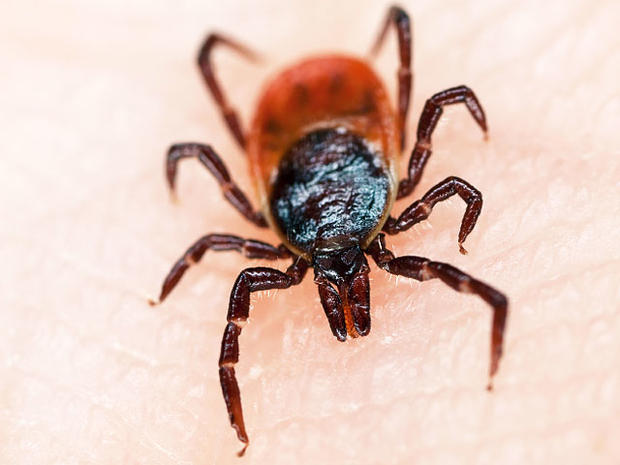New tick-borne illness has scientists spooked
(CBS) Is a new tick-borne illness about to crawl its way across the U.S.? Researchers are worried after identifying a new strain of ehrlichiosis in the Midwest.
What's different about this unnamed ehrlichiosis strain? It's spread by deer ticks, the same ones responsible for Lyme disease and the tick-borne disease called babesiosis. The lone star tick was the primary culprit for spreading ehrlichiosis before this report, published in the August 4 issue of the New England Journal of Medicine, came out. So doctors at the Mayo Clinic, who discovered this new strain, are concerned now that it has popped up in 25 people - especially since deer ticks are more common in some parts of the country, especially in Eastern states.
"Before this report, human ehrlichiosis was thought to be very rare or absent in Minnesota and Wisconsin," Dr. Bobbi Pritt, director of the clinical parasitology and virology laboratories at the Mayo Clinic said in a written statement. "Therefore, physicians might not know to look for Ehrlichia infections at all."
Experts fear some cases may not have been reported, and it could spread outside these two states. After all, Lyme disease was once a problem only in Connecticut before it spread across the U.S. Pritt's lab has screened thousands of blood samples across the country but so far cases are limited to Minnesota and Wisconsin.
"For some reason, it seems to be localized to this area," she told Reuters.
What should people do to protect themselves?
"Use caution when going outside, use insect repellent and wear long pants, long sleeves, and check yourself for ticks," Pritt told HealthDay. "Also, try to stay out of long grasses and shrubs."
Ehrlichiosis symptoms usually develop within one to two weeks of a bite and include fever, headache, chills, muscle pain, nausea, vomiting, diarrhea, red eyes, rash, and confusion. Prompt treatment with an antibiotic doxycycline is essential to reduce fever and prevent severe complications.
The disease can be fatal for some people with weakened immune systems caused by HIV, cancer, or immunosuppressive medications. Of the four patients Pritt described in the study, two were taking immunosuppressive drugs and made a full recovery after antibiotic treatment, WebMD reported.
The CDC has more on ehrlichiosis.

